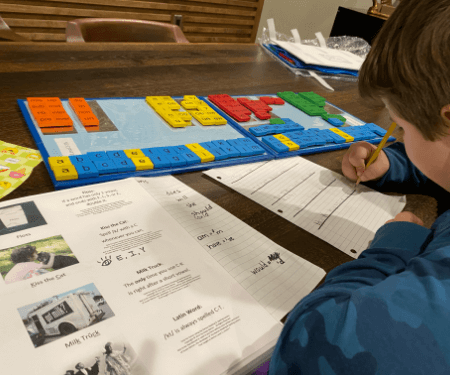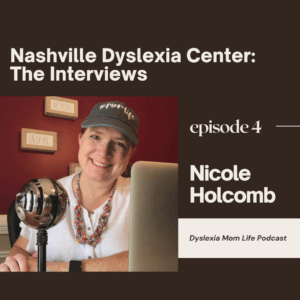The Bill of Rights – the collection of the first ten amendments to the Constitution which guarantees individual rights and limits the power of government.
I decided to write my own “Bill of Rights” for a child with dyslexia. In my opinion, there are some things that are non-negotiable for a child’s success.
–Erin Paske, NDC Owner & Founder
Right Instruction
What kind of instruction does a child with dyslexia need for reading and spelling? Will any program work? A child with dyslexia needs a program that is based on the Orton-Gillingham methodology. There are several brand names of programs, such as Wilson, Take Flight, and S.P.I.R.E. We use Take Flight: A Comprehensive Intervention for Students with Dyslexia in our tutoring service. These programs must be taught with fidelity in order to achieve the best results. Learn what will work and what won’t work.
What does Orton-Gillingham mean? Orton-Gillingham refers to a methodology of teaching reading that is multi-sensory, explicit, systematic, and cumulative. It is based on the ideas of Dr. Samuel Orton and a linguist named Anna Gillingham. This methodology is not new; it’s been around for almost a century!

Right Accommodations
Accommodations level the playing field for a dyslexic child. Accommodations are not cheating, nor do they indicate that a student is lazy. Accommodations do not mean that a different curriculum is used to teach your child. Rather, they are a change in how your child accesses the material or demonstrates his/her learning. Some common accommodations include oral testing, audiobooks, additional time on tests, or reduced homework. Here’s a great video to help you better understand classroom accommodations.
Right Mindset
Dyslexia is a brain difference. It is not brain damage. Dyslexia is a lifelong condition. Even with individualized tutoring, progress in reading and spelling may be slow. That does not mean your child is not a good thinker; we often find the opposite is true!
Provide your child with encouragement and praise! Develop a growth mindset where you say the word, “Yet,” as in, “I haven’t figured this out….yet,” or “I haven’t mastered this….yet.”
Right Support
Right now, your child’s best support is YOU. You are responsible for your child’s education, not the school. Early on, you are your child’s advocate until he learns to advocate for himself. Do your research; learn everything you can about dyslexia and how to help.
I recommend starting with these resources:
The Yale Center for Dyslexia and Creativity
The Nashville Dyslexia Center YouTube channel is the perfect place to start. Watch interviews with experts in dyslexia-related issues, and hear from parents who are also walking this journey. You are not alone!
Right Balance
Dyslexia will be at the forefront of your mind often. It is tempting to only focus on the areas your child is struggling with. But remember, your child is a complete person with his/her own interests and abilities. Make tutoring a priority, but find ways for your child to explore, create, be a part of a team, learn a musical instrument, and excel.
You, as the parent/advocate/cheerleader/ also need to find your right balance! I highly recommend subscribing to the Dyslexia Mom Life podcast by Nicole Holcomb. She’s been in your shoes, and she will help you find the joy in your journey. Click on the image below to view her interview on our YouTube channel:
What rights would you add to your child’s “Bill of Rights for Dyslexia”? I want to hear from you on the matters you consider most important for your child’s success. Drop a comment below or send me an email address at info@nashvilledyslexiacenter.com.

